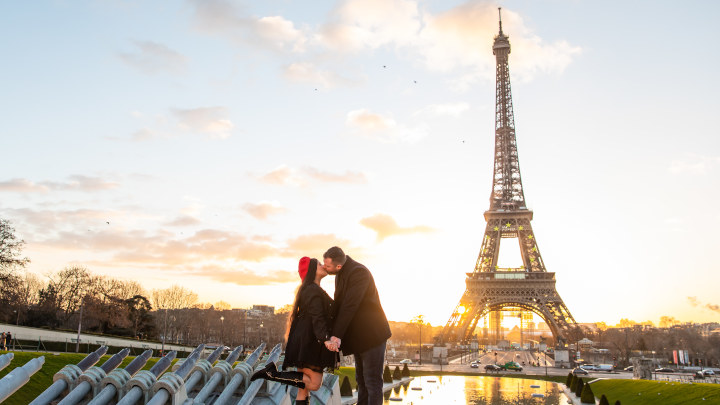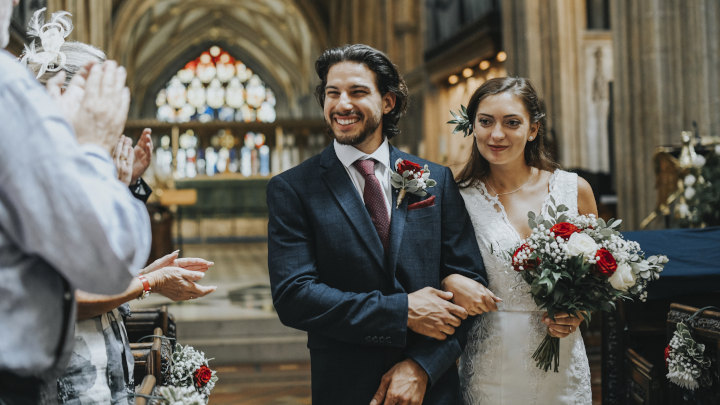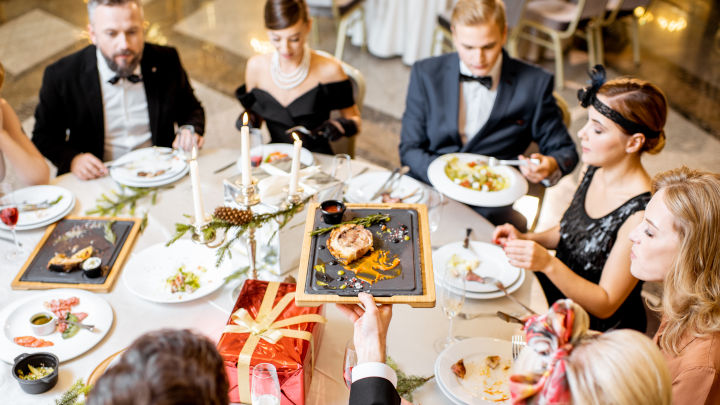Table of Contents
ToggleThe French Reputation for Romance: Why Everyone Falls for France
Ah, France—the land of croissants, wine, and, of course, l’amour.
When it comes to romance, the French have a reputation that precedes them. Think candlelit dinners by the Seine, stolen kisses under the Eiffel Tower, and whispered sweet nothings in charming cafés.
But is it all just a cliché? Well, not entirely.
The French take their love seriously, and their culture is steeped in a deep appreciation for the art of romance.
From classic films like Amélie to the poetic works of Victor Hugo, French culture celebrates love in all its forms.
Even their language is inherently romantic—just saying je t’aime (I love you) feels like a melody. So, whether you’re strolling through the cobblestone streets of Montmartre or sipping espresso at a corner bistro, you’ll quickly realize that romance is woven into the very fabric of French life.
But what makes French romance so special? It’s the attention to detail.
The French believe in savoring every moment, whether it’s a lingering gaze, a thoughtful gift, or a perfectly timed compliment.
Dating in France: The Art of Natural Connection

In France, dating doesn’t follow a rigid formula.
It’s not about scheduling a first, second, or third date; rather, it’s about a gradual, organic unfolding of chemistry and connection.
The French often meet someone through friends, at a café, or even at a party. There’s no rush to define the relationship immediately, as it’s more about shared experiences than following a set script.
In contrast to more structured dating cultures like the US, where exclusivity and relationship labeling can come quickly, the French prefer a less formal approach. Once you spend time together, exclusivity becomes implicit, often developed through shared experiences and silent understanding rather than explicit conversation.
Dos and Don’ts in French Dating
Understanding the subtle nuances of dating in France can help create a smoother connection. Here are some key dos and don’ts to keep in mind:
Dos
- Be Spontaneous and Casual: The French appreciate spontaneity. A relaxed invitation to a café or a casual walk can be a great way to spend time together without the pressure of a formal date. Casual plans are often more genuine and appreciated.
- Appreciate the Art of Seduction: French dating is centered around la séduction—an elegant, playful form of charm and attraction. Compliments should feel thoughtful and specific, like “Tu as un sourire captivant” (You have a captivating smile), instead of generic flattery. A touch of humor and wit goes a long way.
- Be Subtle with Your Intentions: The French often prefer to take their time to get to know someone without rushing into defining the relationship. Let things evolve naturally. Slow and steady tends to win the race in French dating, so don’t pressure the situation.
- Focus on Experiences Over Labels: Relationships are less about discussing exclusivity upfront and more about enjoying moments together. The French don’t typically rush to label the relationship; exclusivity often happens through shared experiences and unspoken understandings rather than explicit conversation.
- Enjoy Intimate and Intellectual Conversations: Conversations are often the heart of French dating. The French enjoy meaningful, witty, and intellectual dialogue. Don’t shy away from deeper topics, but avoid getting too personal or heavy too soon.
- Dress Well: While there’s no need for formal attire every time, French fashion is understated yet elegant. Pay attention to how you present yourself, but without overdoing it. A well-groomed appearance is highly valued.
Don’ts
- Avoid Overtexting: French people value their personal space, so avoid bombarding someone with excessive texts or messages. Don’t be overly eager. Giving each other a little space and time to breathe is important in French culture.
- Don’t Rush Into Exclusivity: Unlike in some cultures, the French don’t rush to define relationships. Don’t expect an immediate declaration of exclusivity. Let things unfold naturally—there’s no need for “the talk” too early.
- Don’t Be Too Forward or Overly Direct: While charm is appreciated, being overly aggressive or direct with your intentions can be a turn-off. Don’t push for too much too soon. Instead, let attraction grow over time with subtle gestures and genuine interest.
- Avoid Talking Too Much About Money or Status: Conversations around money, career status, or overly materialistic topics aren’t common on early dates. Focus on who the person is, not their external achievements. Avoid appearing arrogant or obsessed with wealth.
- Don’t Overdo the Compliments: While compliments are a part of French seduction, they should be sincere and not excessive. Complimenting someone on something specific like their smile or their intelligence feels more genuine than saying, “You’re beautiful” repeatedly.
- Don’t Assume Too Much Too Soon: Avoid assuming that because you had a great time together, the relationship is automatically heading towards something serious. The French tend to take their time to see how things develop naturally.
Fiancées, Engagements, and the Road to Marriage in France

In France, the demande en mariage (marriage proposal) marks an important moment in a couple’s journey.
However, it’s not necessarily as grandiose or long-lasting as some might expect. When a man proposes, it’s more about the significance of the commitment rather than creating a spectacle.
What the Proposal Means
The proposal itself is a solemn and intimate gesture.
It signals that the man is ready to take the next step toward a lifelong commitment.
It’s understood as an official promise to marry, but it doesn’t always come with a huge public display. While some people may go for a traditional proposal, such as in a romantic setting with a ring, others may keep it more understated, perhaps asking at home or during a casual outing.
The engagement ring is customary in France, but it’s not as emphasized as in some cultures. The style can range from simple to extravagant, depending on personal taste and financial situation. For example, a diamond ring is typical, but some couples may choose other types of jewelry or none at all.
What Happens Next?
Once the demande en mariage has taken place and the proposal is accepted, it’s a formal acknowledgment of the intention to marry. In France, however, the engagement period doesn’t necessarily stretch on for years. It’s more about the couple preparing for the next steps in their lives together, and the wedding often follows within a relatively short time frame—sometimes as little as a few months, but usually within a year.
Engagement Parties
Unlike in many countries, engagement parties aren’t mandatory in France. If one does take place, it’s often a low-key affair. It’s typically just close friends and family coming together to celebrate the upcoming marriage, without much fanfare. It’s a way to mark the moment and share the couple’s happiness, but it doesn’t carry the same weight as the wedding itself.
Family and Social Expectations
After the proposal, there’s an unspoken expectation for the couple to begin discussing the wedding plans.
In some cases, the engagement might be used as an opportunity to involve both families, especially when it comes to discussing the wedding ceremony, guest lists, and other details. The families may meet informally to discuss expectations and traditions, but this is usually a private matter.
Civil and Religious Ceremonies: The Heart of a French Wedding

In France, a wedding is a blend of legal obligation, cultural tradition, and personal celebration. There are two key components: the civil ceremony and, for many couples, a religious or secular celebration.
The Civil Ceremony: A Mandatory Step
The civil ceremony is the only legally binding wedding in France, making it an essential part of the process. It must take place in the mairie (town hall) of the couple’s place of residence. Conducted by the mayor or a municipal official, it’s a formal but relatively brief event (usually 15–30 minutes), attended by close family and friends.
During the ceremony:
- The couple, accompanied by their témoins (witnesses), sits or stands before the officiant.
- The official reads out sections of the French Civil Code related to marriage, emphasizing the rights and responsibilities of both spouses.
- The couple exchanges “Oui” (Yes) to confirm their vows, often without personalized speeches.
- The signing of the marriage register follows, with the witnesses also signing.
- The couple may exchange rings (though this is traditionally reserved for a religious ceremony).
- The ceremony concludes with congratulations and group photos, followed by a champagne toast outside the town hall.
The Religious or Symbolic Ceremony
For couples opting for a religious wedding, the church ceremony follows the civil one. Catholic weddings, the most common, include:
- Processional: The groom waits at the altar as the bride enters, traditionally escorted by her father.
- Readings & Sermon: Selected passages from the Bible, often read by family or close friends, with the priest offering reflections on marriage.
- Exchange of Vows: Unlike in the civil ceremony, here the couple recites personalized or traditional vows before God.
- Blessing & Exchange of Rings: The priest blesses the rings before the couple places them on each other’s fingers.
- The Kiss: Unlike in some cultures where the kiss is optional in religious settings, French couples typically seal their vows with a kiss.
- Exit from the Church: The newlyweds walk down the aisle while guests throw rose petals, rice, or confetti in celebration.
For those opting for a secular ceremony, it might take place in an outdoor venue or a private estate with a personalized speech from a celebrant.
The Wedding Celebration: Food, Traditions, and Festivities

After the formalities, the real celebration begins. French weddings are known for their elegance, exquisite food, and a well-paced mix of traditions.
Guest List & Who Attends What?
A French wedding day is typically divided into three parts, with different guests invited to different stages:
- Closest Family & Witnesses: Attend the civil ceremony at the town hall, often followed by a private lunch.
- Close Circle: Joins the religious or secular ceremony and stays for the full wedding reception (including dinner).
- Wider Circle & Casual Acquaintances: Invited only to the cocktail reception (aperitif), but not the formal dinner.
French weddings usually range from 80 to 200 guests, with smaller weddings being more intimate affairs with fewer than 50 attendees.
Wedding Dress Code
- Bride: Traditionally wears a white wedding dress, but modern brides sometimes choose off-white, champagne, or even pastel tones.
- Groom: Typically wears a suit or tuxedo, often with a stylish French twist—like a dark blue suit instead of classic black.
- Guests: French wedding fashion leans towards elegance—women often wear cocktail dresses, avoiding white or overly extravagant gowns, while men typically wear suits, with no strict requirement for black tie unless specified.
Common French Wedding Traditions
French weddings incorporate many charming customs:
- Throwing the Bouquet: The bride tosses her bouquet over her shoulder to a group of single women. Tradition says the one who catches it will be the next to marry.
- The Wedding Toast: A champagne toast (coup de champagne) is a must, often accompanied by a speech from the best man and maid of honor (témoins).
- Croquembouche vs. Wedding Cake: Instead of a tiered wedding cake, many French couples choose a croquembouche—a spectacular tower of caramel-glazed cream puffs.
- Opening the Dance Floor: The couple shares the first dance, typically a slow waltz or romantic song, before guests join in.
- The Fontaine à Champagne: A tower of stacked champagne glasses is filled from the top, creating a cascading effect.
- Games & Entertainment: Some weddings include quizzes, games, or playful presentations organized by friends.
The Structure of a French Wedding Reception
The wedding celebration unfolds in several key phases:
- L’Apéritif (Cocktail Reception) — Open to More Guests
- Usually held outdoors or in a garden.
- Features champagne, wine, and small bites like canapés, foie gras, and macarons.
- Casual guests and acquaintances are often invited only to this part.
- Le Repas de Mariage (Wedding Dinner) — For the Closest Circle
- A multi-course meal with a French culinary touch, often lasting 3–5 hours.
- Courses typically include appetizers, fish or meat, cheese, and a decadent dessert.
- The wedding cake (pièce montée) is presented with sparklers for dramatic effect.
- La Fête (Party & Dancing)
- Music and dancing begin after dinner, lasting into the early hours of the morning.
- A late-night snack (soupe à l’oignon, onion soup) is sometimes served before guests leave.
The Honeymoon: A Final Romantic Touch

After the wedding, many French couples embark on a honeymoon, often referred to as the voyage de noces.
- Popular destinations include the South of France (Provence, the Côte d’Azur), Italy, Greece, the Maldives, or exotic locations like Tahiti and Bora Bora (French Pacific Territories).
- Some couples delay their honeymoon for practical reasons, preferring to travel a few months after the wedding.
- Those who don’t travel immediately may instead opt for a romantic weekend getaway in the French countryside.
French Courting Vocabulary: Speaking the Language of Love
To impress your French crush or partner, a solid grasp of romantic vocabulary can make all the difference. Here are some essential French phrases and compliments that will help you speak the language of love like a native:
Essential Phrases:
- Je t’aime (I love you): The ultimate declaration of love.
- Tu me manques (I miss you): Perfect for those moments apart.
- Tu es magnifique (You are magnificent): A classic compliment that will always win hearts.
- On se voit ce soir ? (Shall we meet tonight?): The invitation to a romantic rendezvous.
- Tu veux sortir avec moi ? (Do you want to go out with me?): A simple but effective way to ask someone out.
- Tu es ma moitié (You are my other half): A deep and tender way to express affection.
- J’ai envie de toi (I want you): A passionate, flirtatious statement that adds a touch of intimacy.
- Tu es irrésistible (You are irresistible): A compliment for when they’ve truly caught your attention.
- Ton sourire illumine ma journée (Your smile brightens my day): A poetic and thoughtful compliment.
- Je suis fou de toi (I’m crazy about you): A playful and affectionate way to express your feelings.
- Mon amour (My love): An endearing term used to refer to someone you’re in love with.
Love Expressions Beyond Words: In French culture, non-verbal communication speaks volumes. The French excel at using gestures, like a lingering touch, a meaningful glance, or a smile that speaks volumes. These subtle actions are part of the charm and elegance that define French romance.
Love Lessons from France: How to Bring French Romance Into Your Life
So, what can we learn from the French when it comes to love?
- Take Your Time: Romance isn’t a race. It’s a journey to savor, filled with moments of joy and discovery. The French don’t rush into things—they enjoy every step.
- Cherish the Small Things: Thoughtful gestures, whether it’s a handwritten note, a surprise bouquet, or a meaningful compliment, go a long way. It’s the little things that count.
- Express Your Feelings: Don’t be afraid to speak from the heart, whether through words, actions, or gestures. Love is about authenticity.
Whether you’re an expat navigating the French dating scene or a Vietnamese learner of French dreaming of a Parisian love story, remember this: love is a universal language. And with a little French flair, you can make it even more magical!






